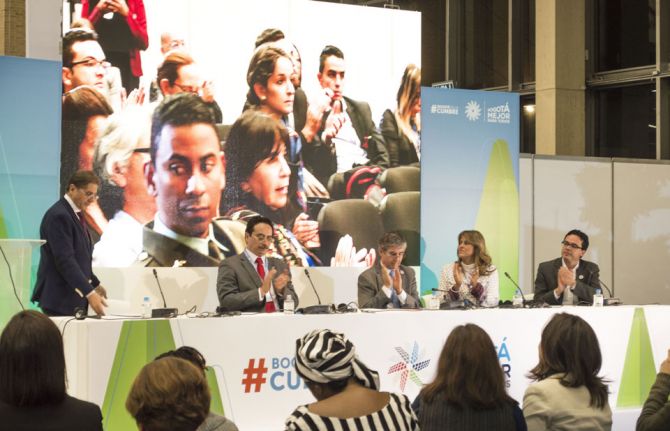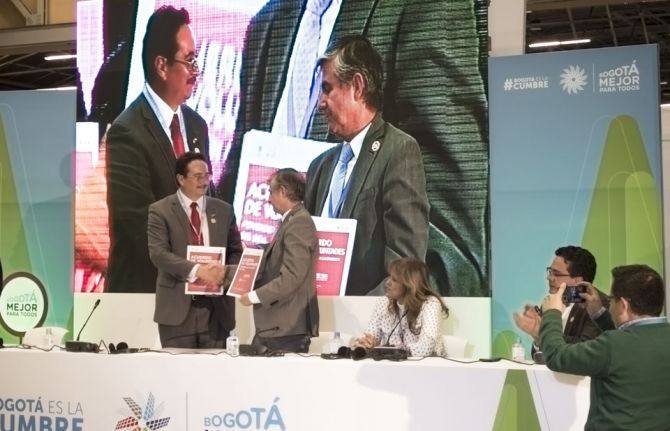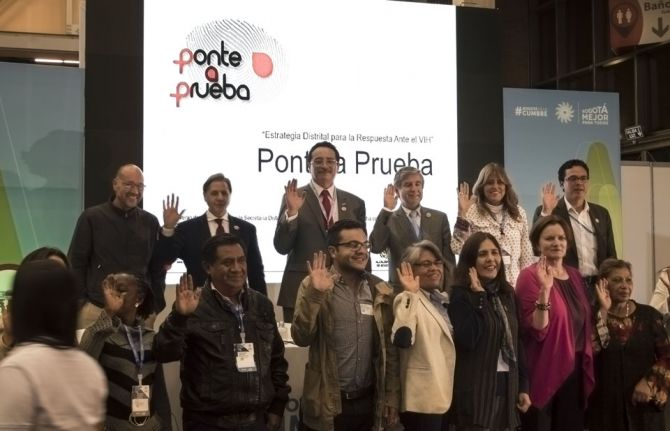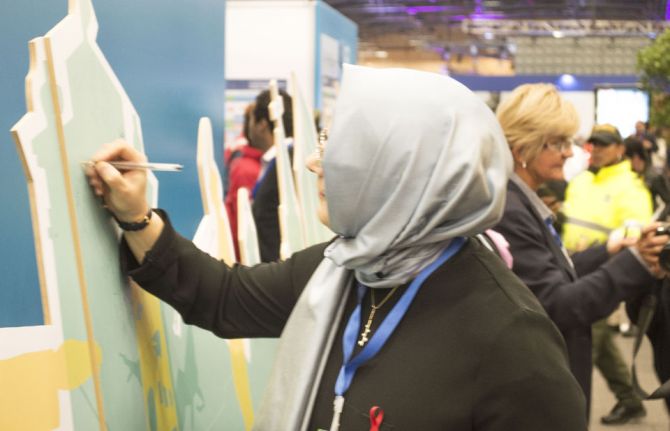





Update
Colombian city representatives join HIV prevention campaign
18 October 2016
18 October 2016 18 October 2016Representatives of Bogotá and Medellín joined the UNAIDS Hands up for #HIVprevention campaign during the World Summit of Local and Regional Leaders, which was held in Bogotá, Colombia, from 12 to 15 October. While participating in a side event entitled HIV and Cities: a Contribution to Healthy and Inclusive Societies, they also discussed what needs to be done to strengthen HIV prevention in urban settings.
The session identified innovative strategies to address the social and urban determinants of the HIV epidemic and to prevent new HIV infections through community-based services in cities. For example, the city of Medellín supports youth-friendly centres that provide a comprehensive package of HIV and sexual and reproductive health services. The city of Bogotá, for its part, has held since 2013 an HIV testing campaign targeting key populations and other people affected by HIV.
The participants agreed that cities will play a critical role in accelerating the HIV response and ending the AIDS epidemic by 2030. They underscored that adopting a Fast-Track response to HIV offers a platform to address other public health challenges, including sexual and reproductive health, maternal health and gender-based violence.
UNAIDS, UN-Habitat and the International Association of Providers of AIDS Care have supported the Fast-Track cities initiative since 2014. The initiative is aimed at engaging mayors and other urban leaders to accelerate the HIV response. Working together, cities can take local actions for global impact.
Quotes
“The city of Medellín has the mission to promote and achieve health equity and is committed to ending AIDS as a public health threat.”
“Innovative collaborations at the public and private level, with the involvement of the communities and civil society, are key to strengthening prevention efforts and to ensuring effective and sustainable responses to HIV.”
“I am optimistic that cities in Colombia will succeed in ending the AIDS epidemic in urban areas because I have already seen cities like Bogotá and Medellín successfully adopt accelerated AIDS responses in partnership with communities and civil society.”



